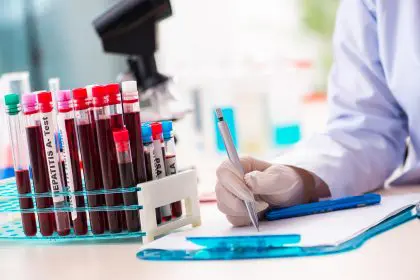The liver’s main job is to detoxify your body. It breaks down harmful substances, including alcohol, filtering them out of your blood so that they can be excreted safely. When you drink alcohol, your liver immediately starts working to break it down. However, the process takes time—about an hour per standard drink. When you drink too much, your liver becomes overwhelmed and struggles to keep up.
Alcohol is broken down into acetaldehyde, a toxic compound that is even more harmful than the alcohol itself. If you consume alcohol faster than your liver can break it down, this acetaldehyde accumulates, contributing to liver damage and inflammation. The liver is resilient, but constant exposure to large amounts of alcohol can overwhelm it and cause significant harm over time.
Alcohol-related liver damage is often silent
One of the most dangerous aspects of drinking too much alcohol is that liver damage often occurs silently, without obvious symptoms. You might not feel the effects immediately, even if your liver is already struggling. This lack of symptoms makes it easy to continue drinking, unaware of the damage being done.
Symptoms of liver damage often appear late, manifesting as fatigue, yellowing of the skin and eyes (jaundice), and abdominal pain. Once these symptoms appear, the damage to the liver is usually advanced and may require urgent medical attention.
Heavy drinking can lead to cirrhosis and liver failure
Cirrhosis is one of the most serious consequences of long-term heavy drinking. It’s a condition where the liver tissue becomes permanently scarred, preventing the organ from functioning properly. Scar tissue replaces healthy liver cells, leading to a decline in the liver’s ability to detoxify your blood, make important proteins and regulate the balance of essential substances in your body.
While not everyone who drinks heavily will develop cirrhosis, the risk increases significantly with the amount and duration of alcohol consumption. Women are at a higher risk of alcohol-induced liver damage, as their bodies generally process alcohol differently than men’s.
The liver can regenerate, but only up to a point
The liver is unique among organs because it has the ability to regenerate itself. After injury or damage, the liver can replace its damaged cells, allowing the organ to heal over time. However, this regenerative power has its limits. If the liver experiences repeated or excessive damage from heavy drinking, its ability to heal is compromised.
In cases where the liver is already damaged but not beyond repair, reducing or quitting alcohol can improve liver function and prevent further harm. The earlier the intervention, the better the chance for the liver to regenerate and restore its health.
Moderate drinking can reduce liver damage
Not all drinking leads to liver damage, and many people can enjoy alcohol responsibly. However, understanding what moderate drinking means is crucial to protecting your liver. Moderate drinking is defined as up to one drink per day for women and up to two drinks per day for men. Exceeding this limit regularly increases your risk of liver damage and related health issues.
If you’re someone who enjoys social drinking, it’s important to know your limits and make choices that support your liver health. Alternate alcohol with water, set a maximum number of drinks and never feel pressured to drink more than you’re comfortable with. By moderating your alcohol intake, you can protect your liver and avoid the long-term health consequences associated with heavy drinking.
Protecting your liver from alcohol’s effects
Your liver is a vital organ that performs numerous essential functions, from detoxifying your blood to producing proteins necessary for your body to function properly. Drinking too much alcohol can damage this organ and lead to severe health issues, including cirrhosis and liver failure. However, by understanding how alcohol affects the liver and making conscious decisions about alcohol consumption, you can protect your liver and improve your overall health.
To support liver health, consider adopting a balanced lifestyle that limits alcohol intake, incorporates nutritious food and includes regular physical activity. If you have concerns about your alcohol consumption and its impact on your liver, it’s essential to speak with a health care provider. Making informed choices today can lead to a healthier future and a liver that continues to work well throughout your life.
This story was created using AI technology.















